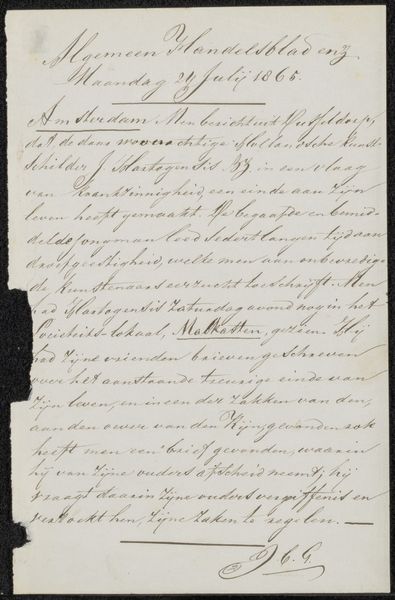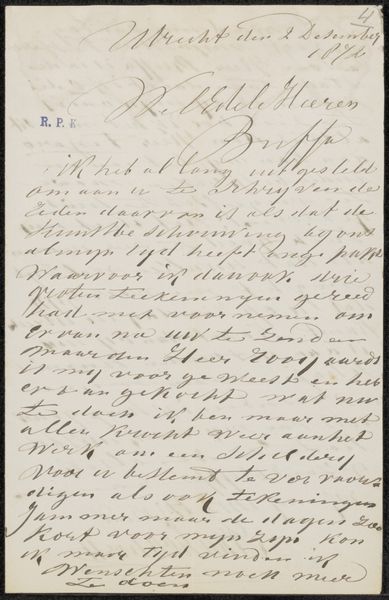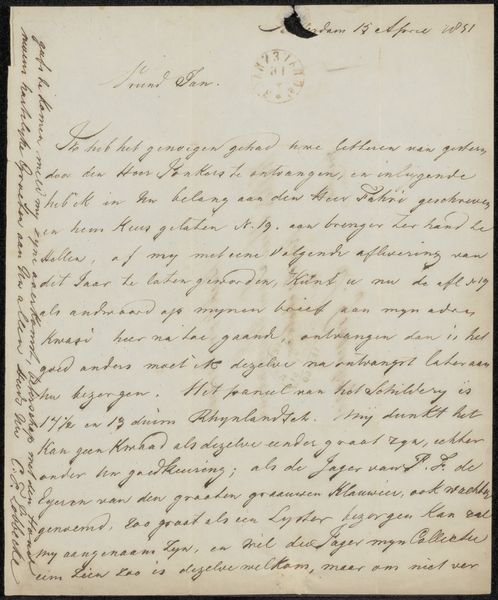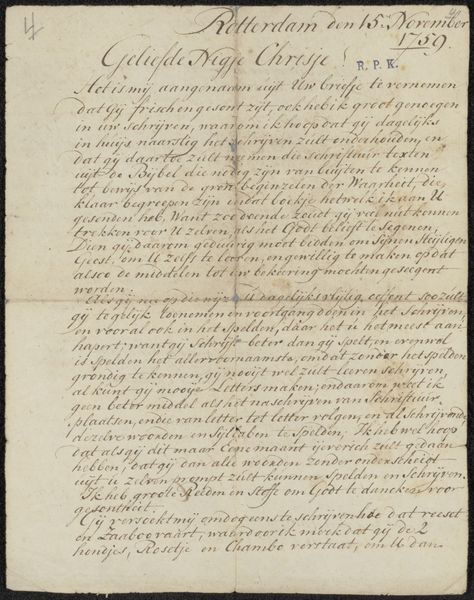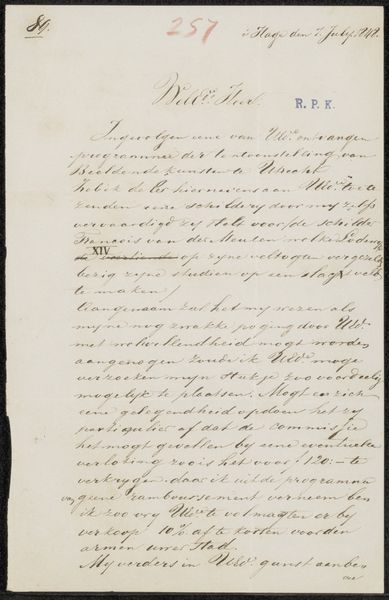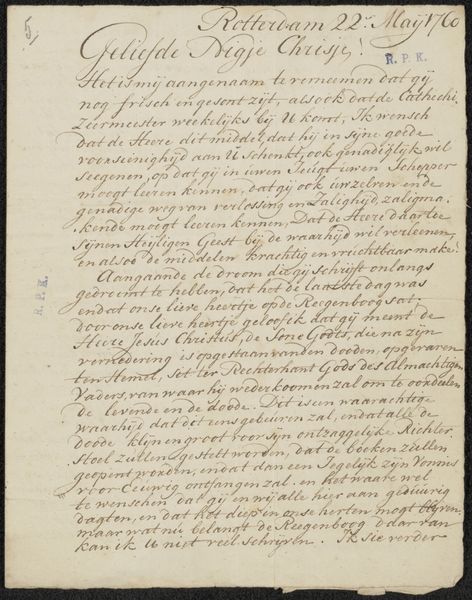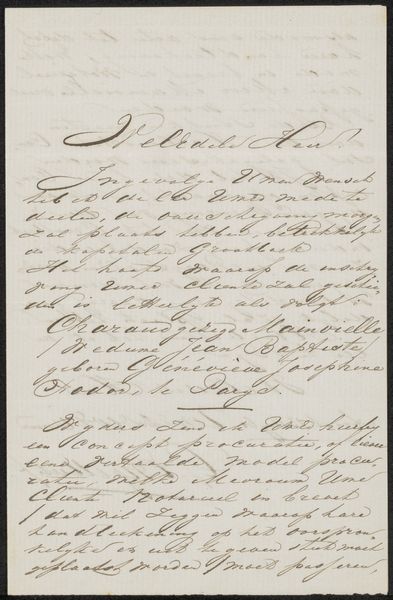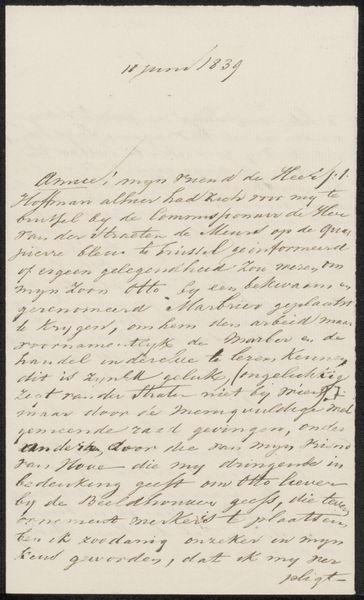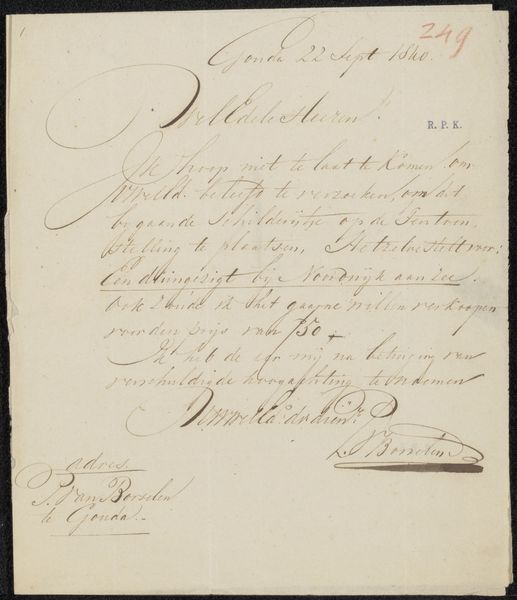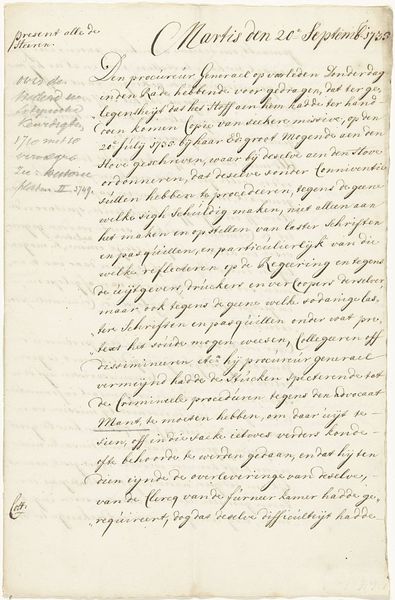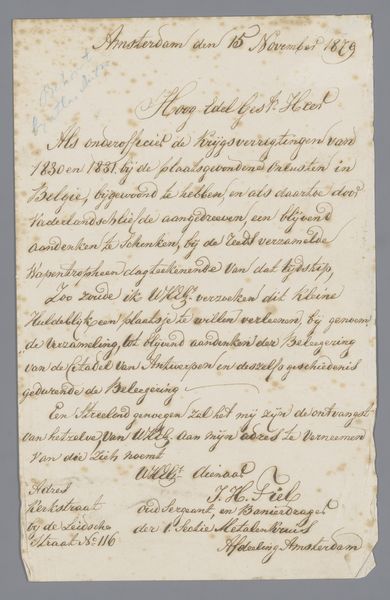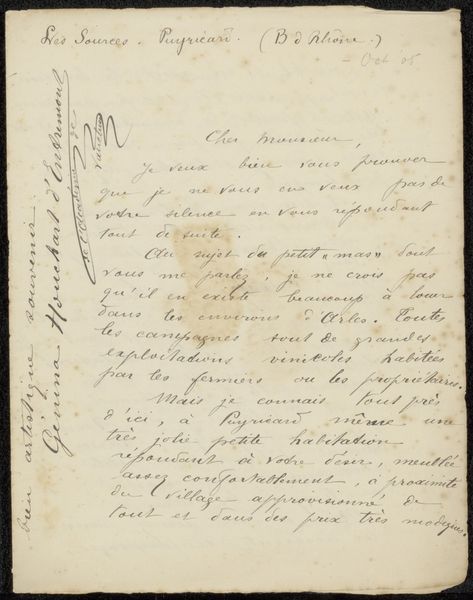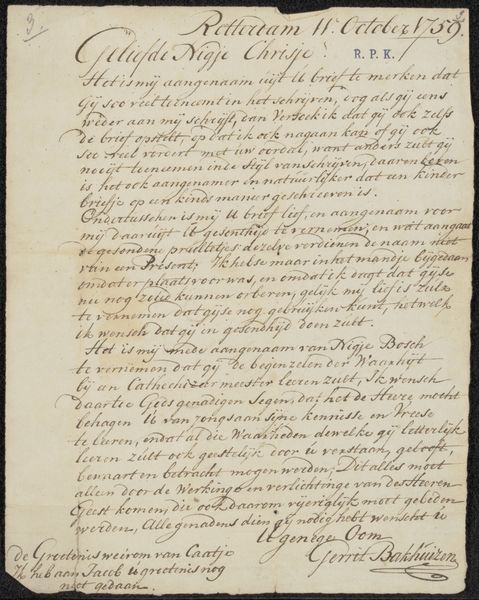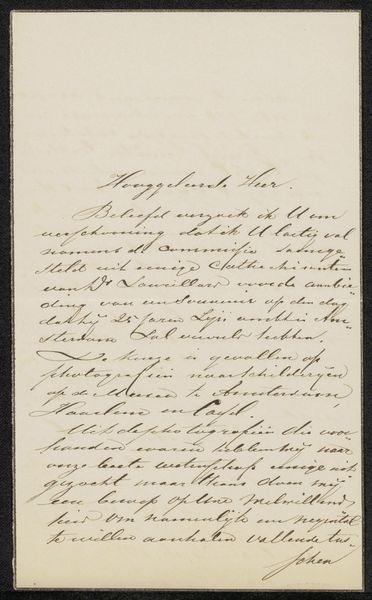
Brief aan Ludolf Backhuysen (II) en Juliana Charlotte Elisabeth Backhuijzen-Parmesant Possibly 1763
0:00
0:00
drawing, paper, typography, ink, pen
#
portrait
#
drawing
#
script typography
#
hand-lettering
#
hand drawn type
#
hand lettering
#
paper
#
typography
#
ink
#
hand-drawn typeface
#
fading type
#
stylized text
#
thick font
#
typography style
#
pen
#
handwritten font
Copyright: Rijks Museum: Open Domain
Curator: At first glance, it seems like a complex tapestry, a visual echo of calligraphy intertwined with delicate fragility. Editor: Yes, there’s an ethereal quality. What are we looking at precisely? Curator: This piece is "Brief aan Ludolf Backhuysen (II) en Juliana Charlotte Elisabeth Backhuijzen-Parmesant," tentatively dated around 1763, attributed to Frans de Bergh. The medium combines pen, ink, and paper. I think the most interesting aspect is how it bridges calligraphy and portraiture, or perhaps rather uses calligraphy in place of portraiture. Editor: Portraiture, really? So, is this elaborate handwriting standing in for a likeness of these people? I am curious about the context of this almost lost, fading, practice and the culture of correspondence. Curator: In a way, yes. The symbolism embedded within the script itself— the weight of each flourish, the pressure of the pen, tells its own story. Each loop can represent both the subject, and the relationship. Editor: It brings up questions of accessibility. How many people, then or now, could decipher and appreciate the nuances of this ‘portrait’? Does that affect its value, knowing only an elite few were intended to fully “see” it? Was there intent for some viewers to see and know less? Curator: That tension between exclusivity and expression is crucial. The piece functions as an icon for their existence and stature within their community. Beyond the legibility of its contents, its presence acts as cultural marker and preserver. Editor: It is tempting to apply contemporary understanding and theory, yet this predates modernity as we now know it. I appreciate seeing it within a conversation between intention, ability, and community. Thank you for that additional dimension. Curator: It makes me think about how we leave our own traces— what gestures will signify our lives in centuries to come.
Comments
No comments
Be the first to comment and join the conversation on the ultimate creative platform.
